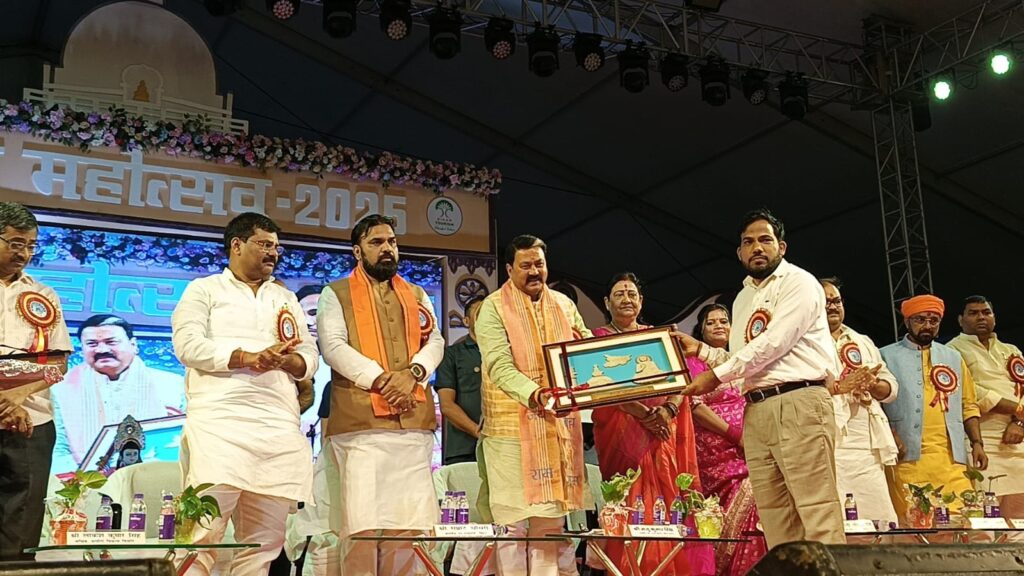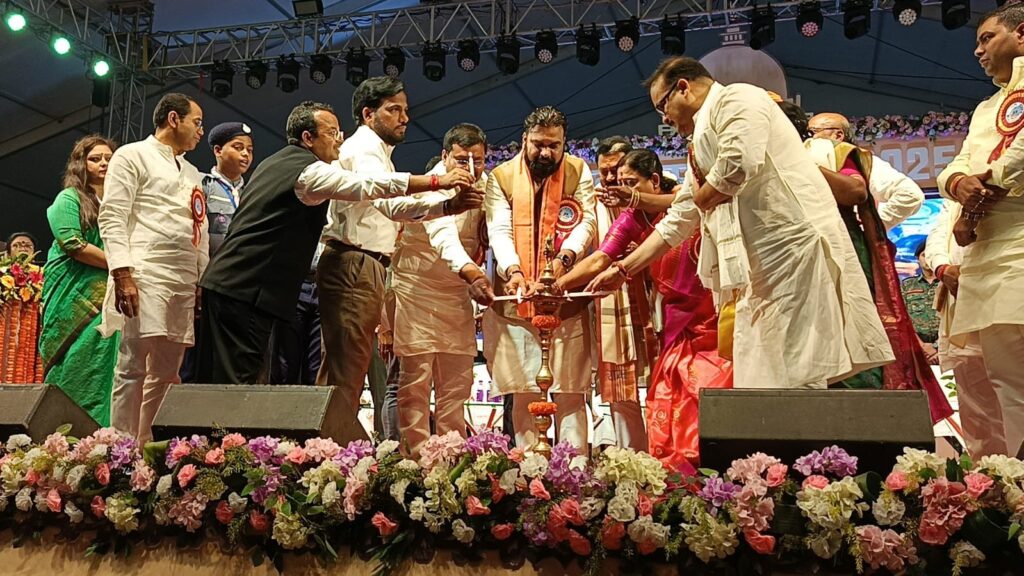

By Gyan Bhadra
Vaishali Mahotsav—A 3-day festival beginning from 10th April—which was organised and celebrated in Vaishali in Bihar on the auspicious occasion of birth anniversary of Bhagwan Mahavir was thronged by politicians of all hues this year. The District Magistrate came to the inaugural venue ; lighted the lamp along with ministers and legislators from both ruling and opposition parties. And then speeches which are delivered by them were superficial and not in sync with the life and times of Lord Mahavir. It springs no surprises that a few people among visiting audience at Vaishali Mahotsav even know the childhood name of Lord Mahavir.
“As a matter of fact, the credit of organising Vaishali Mahotsav goes to late Shri Jagdish Chandra Mathur, an ICS officer who was posted as Sub-divisional officer at Hajipur in 1941, of course during British Raj,” remembers Ajay Kumar Sinha, an old-timer and social activist at Hajipur. Sinha goes on to explain that the then governor-general of India sent Mathur to England on sabbatical to study the history of Vaishali Garh.
During the ancient period, Vaishali Garh was constituted as democratic union of eight kingdoms among which Lichchvi was the leading one. Democratic union was also known as Vajii Sangh of which Vajii, Lichchavi, Kshatrik,Videha, Ugra, Bhoja, Kaurva and Irkshavanku were members. As of today, it is amazing that inheritors of those eight kingdoms are traceless.
As a fact, the main objective of sending Jagdish Chandra Mathur to England by the British government was to research and dig out the facts related to forms of governance and administration during the ancient period in India. And in consonance with ancient forms of governance, Britishers desired to rule India at that point of time. Since Vaishali was considered as world’s first republic, it became an obvious choice of British rulers. And J .C. Mathur, SDO at Hajipur sub-division became their blue-eyed boy for completing the research job.
What is more, the steps taken by the British government to hold elections in seven presidency states during the British regime in 1937 and in 1946 speak volumes about the seeds of partial democratic governance which were sown by Britishers for the first time in India. And if we delve deep, it is a much lesser-known fact that Chiefs of all seven presidency states were instrumental in electing Pandit Jawaharlal Nehru as Prime Minister of India in 1946 under British India.
Anyhow while talking about Vaishali Mahotsav, it is imperative on the part of district administration to organise seminars and workshops during the 3-day festival for starting discourse on the research findings of related to Vaishali by Jagdish Chandra Mathur. Also, during the period, epoch-making literature “Singha Senapati” written by Rahul Sankrityayan in 1940 may be discussed as “Vaishali Samvad” for people thronging the festival venue. Also “Vaishali ki Nagarvadhu” written by Acharya Chatursen Shastri in 1920 could be cited as a case in point for cultural discourse. Folk dances expressing the rich cultural heritage of Vaishali which were once part and parcel of Vaishali Mahotsav during ‘60s and ‘70s have now been replaced by modern songs and dance sequences, Sinha recalls with dismay.


